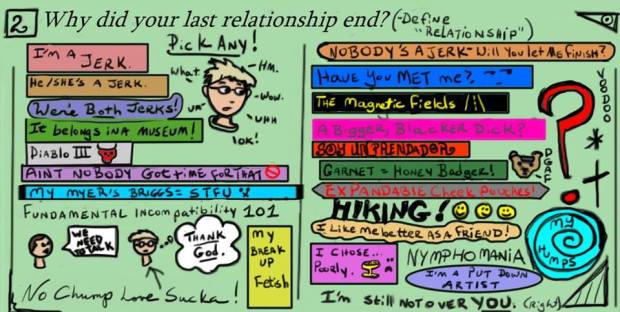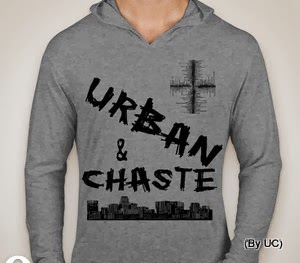 All credit to the artist: Garnet Griffin
All credit to the artist: Garnet Griffin
It's the heart's the crazy bus driver
 All credit to the artist: Garnet Griffin
All credit to the artist: Garnet Griffin

You can be anything you want in this country.
Funeral consultant? Sure.
Urban Chastity Coach? Heck yeah! Magazine publisher too!
Motivational speaker? Jeweler? TV star? Christian life coach? DO IT ALL!
DIVA!!
Allow us to introduce the former Funeral Queen, now just Queen Muneera!
Back to bed for me.
Wrong number email and text messages are a joy. I’ve had email addresses with just a first name or simple word and received everything from a detailed thank your for a weekend-o-sex to a nauseating consumer complaint about a yeast infection remedy.
Sometimes it’s just Kismet, though.
Years ago I got a mistaken invitation to an actor’s birthday party. He’s a B level guy who’s been in two good movies.
It was a decade birthday and they’d gone all out. The venue was an estate in a rural but aristocratic setting.
The invitation presented necessary information: location, parking instructions, notes about food and pets for those with allergies, etc. Directions were given for those driving, arriving by airline, or flying in on private or chartered planes to the closer local airport. Hotels were listed for those staying multiple days in the area.
And then the kicker. The last set of “resources” was a list of local escort agencies, followed by modeling agencies including the nearest local branch of probably the world’s best-known modeling agency.
I’ll set aside for now my opinion on someone who puts prostitution options in his birthday invitation. Plus, for a call girl in Nowheresville, a gig at B-level celebrity’s big shindig is at way better than the usual.
But let us pause to consider the life of those on the roster of BigModelingAgency in a town that isn’t even Sacramento, much less New York. Young and driven, aiming for the bright lights and adoration of high fashion, always the most dazzling kid in school, and pumped with excitement at this new opportunity to move up with the reknowned agency… …and you get those phone calls. What the hell do you do? What happens if you do, or if you don’t? Is this job explicit, or do you just find out at the party, or afterwards? What’s the role of the agency here? What are the stories, and what do they sound like from each of the parties involved? Holy crap!
So that’s the wrong number email I remember the most, not because of the weird celebrity connection, but because of that window into the world of an aspiring fashion model out in the sticks. It is, to paraphrase David Foster Wallace, a double-handed forehead clutcher.
It is a fact generally acknowledged that the institution of marriage in the United States is troubled.
Editorial writers, television journalists, and politicians are agreed that less people are marrying, less are taking their marriages seriously, more are ending their marriages, and those who end them often have several. The importance and permanence of marriage appear to be badly eroded.
More recently, the attempts by homosexuals to have their marriages legally recognized have alarmed many of the same people. They’ve urged others to stop these proposed changes, on the grounds that marriage between anything other than a man and a woman is against Nature, and that this change will further damage this wounded institution of marriage or even finally kill it.
Whatever the measurable facts might be, there is a perception among the educated middle class that marriage is reduced, threatened, devalued, and possibly outmoded, and it’s a great cause for concern for many people. It would be generally helpful to calm their fears and, if possible, to revive marriage as a serious institution for those who choose it. Mistreating homosexuals is not helpful, nor is theocracy.
Prohibiting divorce and remarriage is the most obvious approach, but is politically impossible. Religious or simply conservative individuals who dislike homosexuals and fornicators are still unwilling to abandon serial marriage as an option, and will resist this fiercely, despite implied contradictions in their thinking.
Instead, I propose that we treat this as a matter of state incentive, and make our improvements with pricing as we do in the case of roads, for example. In this particular case, the problem is not the first marriage itself, which must be kept simple and inexpensive, but the mechanism of divorce. Easy divorce erodes the permanence and seriousness of marriage.
I propose a new set of taxes or fees, which will at once act as a brake on casual marriage and benefit the people financially. The act of divorce also must remain simple and inexpensive; the cost of endless failed marriages is measured not only in misery but in the cost of domestic violence and child abuse, which unduly burdens us all.
Instead, the schedule of fees will apply to remarriage. A second marriage, for example, might cost $5,000. This is a reasonable fee for a serious commitment, and will emphasize to both parties that they are taking on a serious responsibility. The third marriage in this case would require a $15,000 fee; the fourth, $50,000; and the fifth, $100,000. Whether to continue increasing the fee or not is a matter for further discussion.
This schedule of assessment on new marriages would apply to any marriage license issued by the government. Religious institutions would remain free to declare marriages valid or not by their own accounting, but none of this would apply to the legal status of those marrying.
In the case of polyamorous marriage, fees would apply to all participants.
Widows and widowers would be exempt from the remarriage payment for the next marriage after the death of their former partners. Legal penalties for the intentional death of a spouse to avoid the marriage fee would be increased over and above those for other murders, to reduce moral hazard from this rule.
The advantages of this system are obvious. No one is prevented from legally ending an insupportable marriage. Those who are seriously committed to further marriages are free to do so after paying the fee. Feckless and flighty couples with money will progressively enrich the state and the people. And as in all such plans, the cycle of divorce and remarriage will be dramatically slowed. Finally, the power of the institution itself will be greatly enhanced both in practical decision-making and generally respect. Nothing commands more authority in American society than a very large price tag.
I hope you’ll join me in sharing this proposal with friends, family, church leaders, and government representatives. I think that all of us, whether we intend to marry or not, can support a rescue of the power of marriage that restricts none of us and enriches all of us.
Holiday good times on Twitter:
http://twitter.com/#!/substitute/status/7940724037259266
http://twitter.com/Poutine_Bot/status/7941615922454528
http://twitter.com/sodomy_bot/status/7952487717806080
http://twitter.com/Poutine_Bot/status/7952946658549760
http://twitter.com/sodomized_bot/status/7959280661561344
Happy Thanksgiving, fellow Americans.
In the adult bookstore (why do they still call it that?) near me there are many, many pornographic videos.
They are all intended for straight men. Men having sex with women, women having sex with women in order to please men, and varieties of kink for straight men.
There is one section of the videos that is not straight pornography. Can you guess what it is?
The Halloween costume for women that I call the “Slutty Noun” outfit is now a topic of debate and outrage; I’ve been complaining about it for years. It’s mainstreaming the sex industry, dragging women back into the Playboy Bunny past, and in poor taste. Yuck!
Last year I realized something worse. While the women dress as stereotyped available objects (nurse, catwoman, stripper outfits, little French maid, showgirls) the men have their own roles. They’re pirates, soldiers, cops, horror movie murderers, Dracula, barbarian.” These roles have something in common too: they’re powerfully violent and often depicted assaulting women.
What’s the message? Men are rapists and women are their victims. And now every year the men and women dress that way, go to parties and bars and get sloshed, and see what happens.
Anyone is free to explore sexuality and enjoy role-playing I don’t like. In this case it would be less worrisome if any if these people knew what roles they were taking on and where that might go.
Favorite quote from the ad is a testimonial:
I DIG THE LUBE TUBE VIDEO LOUNGE WITH INTEGRATED CIRCLE JERK VIDCHAT